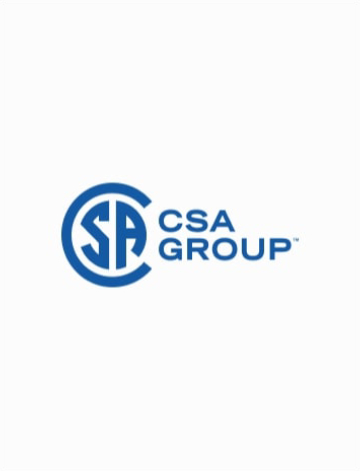Preface
This is the third edition of CSA N292.2, Interim dry storage of irradiated fuel. It supersedes the previous edition published in 2007.
This Standard is part of a series of Standards on radioactive waste management. It provides life cycle requirements for the interim dry storage of irradiated fuel and covers site selection, design, quality assurance, commissioning, operation, safety, and planning for decommissioning.
This edition has been updated to reflect current industry practice, regulatory changes, and new technologies. Major changes to this edition include
a) updated reference publications;
b) consolidation and reorganization of the general requirements;
c) clarifications on life cycle phases and aging management;
d) increased emphasis on safety and security;
e) broader management systems; and
f) the removal of requirements related to off-site transportation to centralized storage.
Users of this Standard are reminded that the site selection, design, manufacture, construction, installation, commissioning, operation, and decommissioning of nuclear facilities in Canada are subject to the Nuclear Safety and Control Act and its Regulations. The Canadian Nuclear Safety Commission might impose additional requirements to those specified in this Standard.
The CSA N-Series Standards provide an interlinked set of requirements for the management of nuclear facilities and activities. The CSA N286 Standard provides overall direction to management to develop and implement sound management practices and controls, while the other CSA nuclear Standards provide technical requirements and guidance that support the management system. This Standard works in harmony with CSA N286 and does not duplicate the generic requirements of CSA N286; however, it may provide more specific direction for those requirements.
This Standard was prepared by the Subcommittee on Interim Dry Storage of Irradiated Fuel, under the jurisdiction of the Technical Committee on Radioactive Waste Management and the Strategic Steering Committee on Nuclear Standards, and has been formally approved by the Technical Committee.
Scope
1.1
This Standard applies to interim dry storage systems for irradiated fuel including damaged or defective fuel.
Note: For damaged or defective fuel, there may be additional processing and packaging requirements for interim dry storage that are not detailed in this Standard.
1.2
This Standard specifies requirements for the site selection, design, construction, commissioning, operation, and planning for decommissioning of dry storage systems. Dry storage systems include facilities, structures, support services, and equipment required for
a) transferring irradiated fuel
i) from wet storage to dry storage containers; and
ii) to a dry storage facility;
b) processing;
c) storage of irradiated fuel;
d) monitoring;
e) retrieval of irradiated fuel from dry storage; and
f) decommissioning planning.
1.3
This Standard specifies safety and security requirements for dry storage systems.
1.4
This Standard specifies requirements for management systems, including those for quality assurance, environmental management, aging management, and decommissioning planning.
1.5
This Standard does not specify requirements for off-site transportation to centralized storage and/or disposal including the handling, packaging, or transfer of irradiated fuel.
1.6
In CSA Standards, shall is used to express a requirement, i.e., a provision that the user is obliged to satisfy in order to comply with the standard; should is used to express a recommendation or that which is advised but not required; may is used to express an option or that which is permissible within the limits of the standard; and can is used to express possibility or capability.
Notes accompanying clauses do not include requirements or alternative requirements; the purpose of a note accompanying a clause is to separate from the text explanatory or informative material.
Notes to tables and figures are considered part of the table or figure and may be written as requirements.
Annexes are designated normative (mandatory) or informative (non-mandatory) to define their application.


